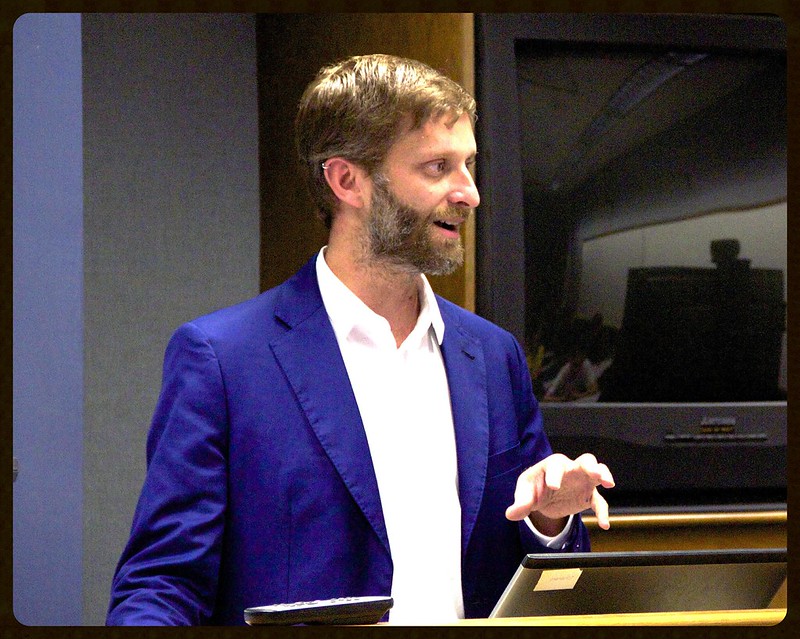By Nisha Garud
Study of the U.S. Institute (SUSI) on Journalism and
Media(SUSI) 2014 entered its full second week with
lectures on the media and political structures and journalistic practices in
two nations of Chile and Costa Rica. Then it was turn for the Indian
sub-continent with lectures by Zin Mar Kyaw from Myanmar and Aruna Lokuliyana
De Silva from Sri Lanka.
 |
| Lionel Rossi from Chile during his lecture. |
Lionel Rossi , an Argentinian working in Chile at the
University of Chile, compared the media structures and journalistic practices
in both countries. Sime of dictatorship has a lot of influence on the Chilean
citizens. The situation is exactly opposite in Argentina. Talking about media
ownership, Lionel said, The media market is oligopolistic, especially the
newspaper industry. It is in the hands of powerful economic groups and
politicians of the right wing. There is no political diversity i0n the
ownership. He added that to ensure freedom of the press, it is important to
create and encourage new spaces of information and to use the growing digital
media to challenge oligopolies.
Lorna Chacon-Martinez from Costa Rica
said that media ownership in her country was similar to Chile. There was
monopoly in the internet market but the situation is now changing. The scholar
was proud to inform that the reach of cellular network in her country was
almost 100 percent. There is lot of political pressure on the journalists but
the press is relatively free and ranks 18th on World Press Freedom Index. At
times, the media favors the left wing, which the youngsters do not approve of.
She said that there was friction between the traditional media and the social
media and social media relied on traditional media for its news.
The media censorship is stricter in
Myanmar and Sri Lanka and the once war-struck nation of Sri Lanka is not a favorable
ground for journalists, concluded scholars Zin Mar and Aruna. The government
owns newspapers and internet in Myanmar. There has been a strict censorship
since 1962 but with the new government in 2011, censorship laws are becoming
less strict, said Zin Mar. She added that documentaries about Burmese culture,
Korean and Indian movies dominate the television content. The army, which has
to play a major role to avoid domination by neighbors China and India has its
own station, which broadcasts educational programs and is a mouthpiece for the
army.
The Rajapaksa family dominates politics
and holds most of the ministerial positions in Sri Lanka, informed Aruna from
Sri Lanka. Using interesting info graphics, the scholar who has won two
national awards for the best cover pages and written numerous books and
directed short documentaries, said print medium was dominated by private owners
until the government took over the biggest organization called Lake House. The
main issues are lack of right to information and lack of investigation into
atrocities against journalists.




No comments:
Post a Comment